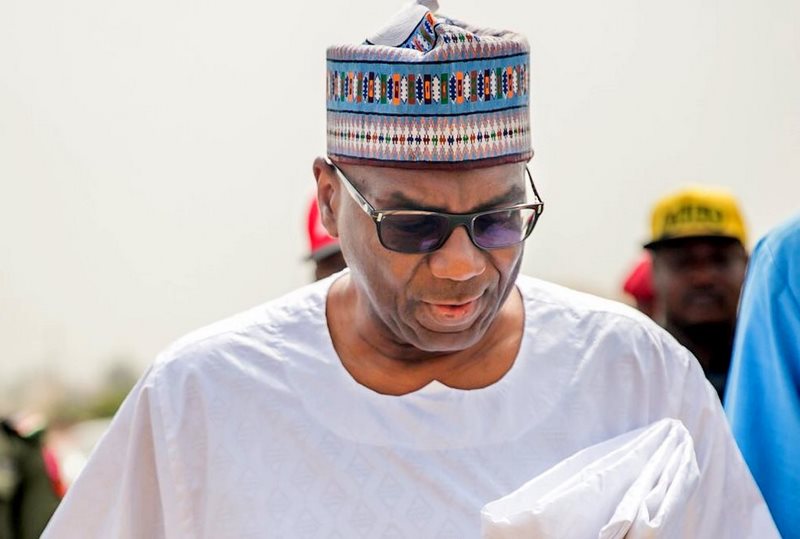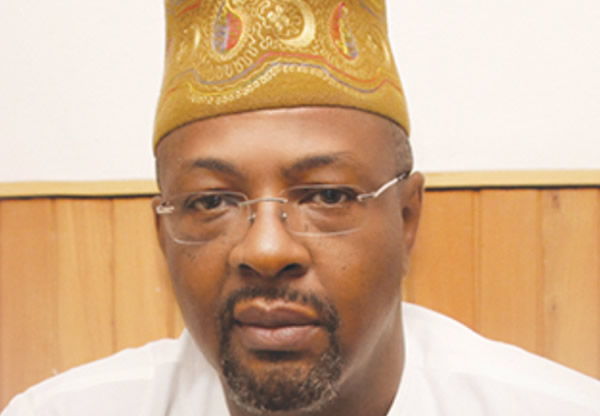Potential COVID-19 vaccine could be ready in September
BY UGO MUOH
The time has come for Nigeria to reset the national economy using the COVID-19 challenge as an unprecedented opportunity, to fully transform Nigeria into a modern, sophisticated and inclusive knowledge-based economy. Given that our mono economy i.e dependence on oil, hasn’t worked for us over the years, we must actualize plans that will transition our national economy.
The end goal being a transitioned economy that is self-sufficient, compensates the hardworking, protects the poor and vulnerable, and can compete globally across a range of strategic sectors.
An affirmation of the importance of this economic transition is the bygone ‘Economic Recovery and Growth Plan’ (ERGP) of the Nigerian Government (2017-2020). Coincidentally one of the major agendas of the plan, is the effort to transition the national economy into a more knowledge-based one.
Advertisement
Arguably, the momentum for forging ahead with such a plan is right now. I believe that this COVID-19 triggered economic downturn, has exposed the inherent vulnerability in the incumbent economic philosophy and structure. Therefore, we must not let this opportunity, during this economic downturn, to transform our economy go to wastage. For the great Winston Churchill is quoted to have said “Never let a good crisis go to waste”.
A knowledge-based economy is basically an economy whereby knowledge and ideas are a key factor of prosperity and economic growth. Much of modern international trade and investment is driven by strong intellectual property protection, human know-how, knowledge, creativity and innovation. Therefore, our need to move from a resource-based economy to knowledge-based economy is necessary now more than ever before, considering the near collapse in crude oil prices that has continuously exposed the vulnerability of Nigeria as a mono-economy.
Today, particularly in this global economic downturn, integrating knowledge-driven data into national development and as a hub for national strategy is imperative for all nations of the world especially developing countries like Nigeria.
Advertisement
Thus, especially for member states, the World Trade Organization (WTO) has accelerated this globalization of knowledge-based industries thanks to its Agreement on Trade-Related Aspects of Intellectual Property Rights (TRIPS), ratified in 1994. It is also pertinent to note that the knowledge driven countries, mainly in the Global West and also Organization for Economic Co-operation and Development (OECD) member states, for instance, United States, Germany, France, Finland have been able to advance a confluence aimed at integrating conventional strategies and leveraging ICTs to mass produce and commercialize knowledge, information, solutions, innovative products and even their cultures for trade to the outside world.
Consequently, its unsurprising that the formerly mentioned countries feature prominently on the 2019 Global Resilience Index, which ranks the resiliency of the business environment across 130 countries, based on factors like economy, political stability, corporate governance, risk environment and supply chain logistics and transparency. Analysts have posited that the top 10 countries featured in this Index are projected to have their economy bounce back best when the virus is contained.
Furthermore, Deep Knowledge Group, an international consortium, has developed an advanced rank-based analytical framework to analyze data emanating from the global spread of this virus. The analytical framework is designed to rapidly assess the changing situation in countries as they strain to mitigate the health and economic consequences of the virus. The analysis revealed that some countries proved very effective at combating COVID-19 early on. For example, knowledge-based and industrialized countries like South Korea and Germany briskly mobilized emergency efforts early on to contain the virus and increase hospital capacity. They utilized technologies including AI, robotics, and big data analysis, in combination with medical treatment and healthcare management techniques structured in a practical way.
Contrarily, in Nigeria considering the poor state of healthcare, our national impetus towards solving manufacturing and medical issues that arise with this pandemic era, such as production of vaccines, PPE’s, medical supplies, ventilators etc. is inadequate as we seemingly haven’t transitioned from a resource-based economy to a knowledge-based economy. Meaning that our burgeoning wealth of intellectual capital isn’t being well applied. In particular, the ability to capitalize on scientific discoveries and basic applied research and gear it towards manufacturing isn’t a well-formed process in the Nigeria. Even though said process, has come to represent a large component of all economic activity in most developed countries.
Advertisement
As the world evolves, we are at risk of being left behind. Up to now, the developed world has transitioned from an agricultural economy, to industrial economy, to post-industrial/mass production economy, to knowledge economy (late 1900s – 2000s, largely the technology/human capital sector). Nigeria is stuck currently in my opinion, at the post-industrial/mass production economic stage. Consequently, we have been unable to marry or commodify the mammoth amount of human resources and knowledge we have, to converge same with our vast supply of natural resources. Such miscarriage should not continue in order for Nigeria to reemerge invigorated post pandemic in the new world order.
This has been one of the impediments towards the transition to a full knowledge economy. Inarguably, domestic politics have also had a major net effect on this issue, however our economic policies need change so as not to be left behind in the grand scheme of things.
It is trite to note that the outbreak of the coronavirus pandemic has negatively affected our regular human existence. The year 2020 has totally changed how nations, communities, and human beings interact with each other. That said, even as the onset of this new decade has proven to be extremely tough, however like the saying goes, ‘when the going gets tough, the tough gets going’. Consequently, by all accounts, things will never remain the same in the world. Certain words will remain entrenched in our regular lexicon for the foreseeable future, terms like quarantine, social distancing, working remotely etc. Conceivably, knowledge economy is another terminology that we should be more familiar with.
On the other hand, a lot remains uncertain, analysts say the pandemic and the measures we are undertaking to save ourselves could permanently change the ways in which we live, work, worship and play in the future. Economic planners envision that post-pandemic world is key in ensuring we change for the better, not the worse. We now live in a global knowledge economy, so the Government ought to create the conditions that allow our people to become knowledge workers and knowledge entrepreneurs. Doing so would assist Nigeria emulate the knowledge-driven countries, who with their human resources, have been able to translate same into manufacturing might.
In the post-pandemic world, intellectual capital and technology will be as ubiquitous as it is now, if not further. In close parallel, technology companies alongside their licensed products and patents produced, shall become an even more indispensable tool for strategic economic mapping and national planning. In other words, the Nigerian government ought to encourage technology companies that help bridge the gap between the analog stage of our socio-economic development into the digital stage. Therefore, in that sense, diligent backing and enforcing of our intellectual property laws can support growth of said technology companies, which can be a step in the right direction to nurture a transition to a more knowledge-based economy.
Advertisement
All things considered, the supremacy of harnessing current global trends and data towards national planning is crucial for the future. It is vital that the Nigerian Government seizes the unfortunate opportunity of the COVID-19 economic downturn, as a blessing in disguise, to reignite the drive towards transitioning from a primarily resource-based economy to a more knowledge-based one.
Proper and deliberate use of this occasion, can relieve the pressures of dependence of oil sale to power and act as a sparkplug for the economy, which would hasten the development of our knowledge-based economy. Creating this eventuality, requires the urgency of acting now to emulate previously discussed countries, which are poised to have their economies bounce back best post-pandemic. This would also better position the Nigerian economy to better withstand future shocks.
Advertisement
Muoh can be contacted by email; [email protected]
Advertisement
2 comments







Interesting perspective only if Nigeria had a responsible or responsive leadership it wouldn’t waste this crisis
True talk. They still maybe time to turn things around